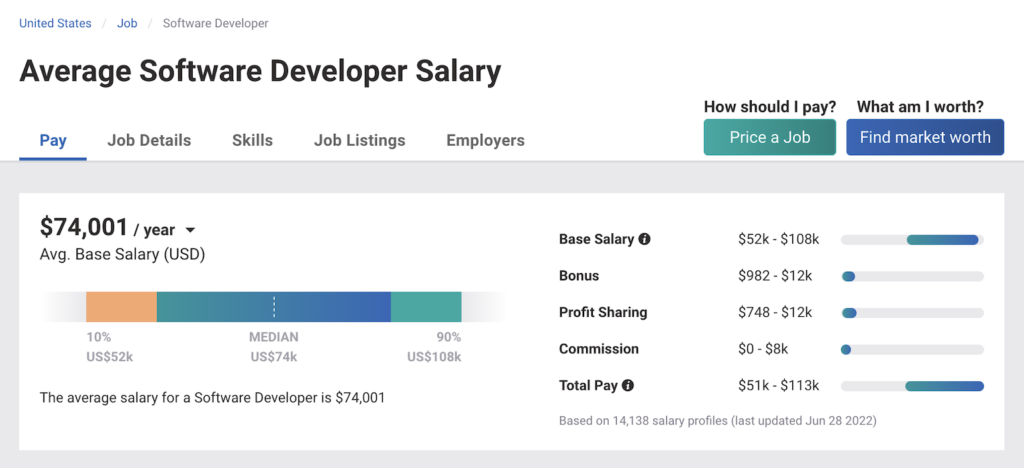Why Choosing the Right Software Development Partner Can Transform Your Project
Why Choosing the Right Software Development Partner Can Transform Your Project
Blog Article
Committed Developers vs. In-House Teams: Which Is Right for You?
The decision between making use of devoted programmers and keeping an in-house group is a significant one that can influence the trajectory of your projects and overall business approach. On the other hand, in-house groups contribute to a natural company society and a nuanced understanding of long-lasting goals.
Comprehending Devoted Developers
The expanding need for specialized skills in the technology sector has resulted in the development of specialized designers as a viable remedy for several companies. These experts are normally gotten on a project basis, enabling companies to utilize certain proficiency without the lasting commitment connected with full-time hires. Dedicated developers are usually ingrained within a customer's group, providing flexibility and scalability to meet task demands.
This version enables companies to access a global skill pool, which is specifically useful in a swiftly progressing technical landscape. Devoted programmers can be sourced from various geographical areas, guaranteeing that companies can find the ideal capability at affordable prices. They commonly bring a wide range of experience and expertise, having worked with diverse tasks throughout different markets.
Furthermore, dedicated programmers can concentrate solely on the jobs handy, boosting efficiency and performance. They are outfitted to incorporate seamlessly into existing process, working together closely with in-house teams to attain job purposes. This strategy not just lowers the burden of employment and training but likewise enables companies to continue to be dexterous, adapting swiftly to changing market demands and technological developments.
Advantages of In-House Teams

Additionally, in-house teams tend to have a much deeper understanding of the firm's mission, worths, and objectives. This positioning can enhance employee engagement and motivation, as team members feel much more linked to their job and the company's success. In addition, having a dedicated internal team permits for far better positioning of strategies and objectives, as these members are regularly concentrated on the firm's priorities.
Internal teams additionally help with quicker decision-making processes, as they can react much more quickly to modifications and obstacles. The well-known partnerships and knowledge with company protocols enable structured workflows and reduced miscommunication. Inevitably, the mix of a cohesive society, positioning with organizational goals, and efficient interaction makes internal teams a beneficial asset for many companies, particularly those seeking to cultivate lasting growth and development.
Price Considerations
When examining price considerations, both in-house groups and dedicated programmers present distinctive financial ramifications for organizations. Involving specialized programmers commonly involves a pay-per-project or per hour price version, which can be affordable for organizations with rising and fall task needs. This approach permits flexibility in scaling sources up or down, guaranteeing that companies only pay for the solutions they require.
On the other hand, in-house groups require fixed prices, consisting of incomes, benefits, and overhead expenses such as workplace and devices. While this version offers higher control and instant accessibility of resources, it might lead to higher long-lasting expenditures, especially if the workload does not validate a full-time team.
Additionally, firms should take into consideration the covert costs associated with employment and training of in-house employees, which can additionally stress budget plans. In some cases, the time and resources invested on managing an in-house team can take away from the company's core organization objectives.

Task Administration and Adaptability
Project management and adaptability are essential variables that influence the choice between internal teams and devoted developers. Dedicated programmers normally supply a high click to read more degree of versatility, enabling organizations to range resources up or down based on task needs. This dexterity can be particularly helpful for services experiencing varying work or those seeking to introduce rapidly. Committed groups commonly have developed procedures for managing jobs successfully, leveraging details methodologies like Agile or Scrum, which help with iterative progression and flexibility.

Ultimately, the choice in between in-house teams and devoted developers depends upon the preferred degree of versatility and the specific job administration demands. Business have to review their operational dynamics, project intricacy, and resource availability to identify which option lines up best with their strategic purposes.
Making the Right Selection
Picking the appropriate growth method-- committed designers or in-house groups-- requires a mindful evaluation of various variables that straighten with a business's calculated objectives. nearshore software development. First, think about the nature of the task. Devoted designers may be extra appropriate if it requires specialized skills or a quick scale-up. Conversely, in-house teams can provide much better continuity and assimilation with existing personnel.
Next, evaluate your budget plan. Dedicated programmers commonly offer a cost-effective remedy for temporary tasks, while internal teams may incur greater long-term costs because of wages, benefits, and expenses expenses. Evaluate the degree of control and cooperation preferred; internal groups typically foster more powerful interaction and alignment with company culture.
Additionally, consider the moment framework. If immediate results are required, devoted designers can be onboarded swiftly, whereas building an in-house team takes some time for employment and training. Lastly, evaluate the lasting vision of your company. If continual advancement is important, spending in an internal team may yield better returns over time. Ultimately, the choice depends upon a complete evaluation of these variables, guaranteeing placement with your company's general objectives and operational requirements.
Verdict
In verdict, the choice between devoted developers and in-house groups hinges on job demands and organizational objectives. On the other hand, in-house teams cultivate a natural culture and much deeper positioning with lasting goals.
The decision between using dedicated designers and preserving an internal group is a considerable one that can affect the trajectory of your tasks and overall business strategy.Job management and adaptability are critical aspects that influence the option in between internal teams and specialized designers. nearshore software development.In contrast, in-house teams might succeed in preserving a consistent project management framework due to their experience with the organization's society and long-term objectives. Committed developers usually offer an affordable click this solution for temporary projects, while in-house teams may incur higher long-term expenses due to incomes, advantages, and overhead prices.In conclusion, the decision in between in-house groups and dedicated developers pivots on task needs and organizational objectives
Report this page